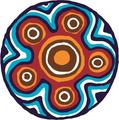Year 7 Term Overviews

English
This term in English, students will be focusing on the use of humour, satire and parody in texts. They will explore a range of multi-modal texts on a range of issues to analyse how visual elements can be used to influence and impact the reader. Propaganda, satirical texts and advertisements are a few of the persuasive genres that students will explore, to deepen their breadth of understanding of humour as a persuasive device. They will have the opportunity to write using humour and other persuasive and visual devices to convince their reader of a point of view on an issue. Students will continue to participate in weekly Literature Circles to build a shared understanding of texts, and take practice in supporting and challenging points of view on a text to allow students to be exposed to multiple perspectives of texts. By the end of the unit students will be able to recognise the role of humour and how authors manipulate text structures and make deliberate choices in their writing to send a message to the reader.
Humanities
This term students will extensively be looking at the people and the democracy of Australia. Students will incrementally build their knowledge by learning about what democracy is. They will then dive into what the constitution is, what are the three forms of government that encompass our democracy and, what roles and responsibilities operate under each strand of government. They will be encouraged to indulge in deep analytical skills of the democracy and the constitution and the various mechanisms, processes, and guidelines that come with it. Moreover, they will also have the opportunity to justify their responses which will enforce deep thinking, trial and error, and sophisticated discussions with their peers and teachers. Furthermore, students will also be participating in the Sharing Water Geography unit. It is imperative to note that “water” will be a key theme in this unit. Students will look at various issues and outcomes related to water. These will include water scarcity, water cycle, different places that have varying levels of water, and an array of actions that involve humans, which as a result impact our water. There will be numerous key skills that will derive from these. Students will be examining primary and secondary sources to explain geographical data. They will be pin-pointing patterns and inferring conclusions from geographical information. Additionally, they will also be differentiating between the key steps of the water cycle and comprehend how each aspect helps. Finally, students will be learning about the importance of place and its spatial characteristics through a geographical lens. By the end of the unit, students will be able to explain the features of Australia’s system of government and the purpose of the Constitution in Australia’s democracy. They will also be able to articulate, justify, and present different processes and impacts of land, water, and geographical data.
Health
In Term 2 students will investigate strategies to establish and maintain respectful relationships. Within this unit, students will identify their emotional responses and explain how these impact their social relationships. Students will investigate multiple scenarios to explain how emotional responses are impacted by environmental, social and cultural factors. Through exploring different viewpoints, they will identify different strategies to demonstrate empathy and sensitivity. Students will identify and explain the structure of local social communities which help them to build healthy and respectful relationships. Students will also recognise personal boundaries utilising their knowledge of healthy relationships, to show their appreciation for different values and beliefs of others.
Maths
Term 2 of Year 7 Mathematics begins with a focus on algebra,, in particular, a focus on the skills of simplifying algebraic expressions, creating algebraic expressions and solving equations. Upon completion, students will be able to understand the concept of variables and pronumerals, and will be able to use pronumerals to represent unknown values . The next focus will be geometry, whereby students will derive formulas of area, describe the properties of different shapes and classifying triangles according to side and angle properties. As this topic concludes, we will revisit fractions, decimals, percentages and proportions. This will require students to be able to connect percentages, decimals and fractions and carry out simple conversions. Using this knowledge, students will recognise and solve simple ratio problems as well as financial mathematical problems. Later in the term, students will explore geometric transformations, including, rotation, reflections and translations. In addition to this, operating with positive and negative numbers will be explored. Specifically, ordering integers and addition of positive and negative numbers, To conclude the term, students will use all their geometric knowledge to plot points on a cartesian plane, as well as interpreting graphs from real life data.
Science
This term, students will develop their knowledge about the water cycle and human impacts on the water cycle. They will explore different types of mixtures and solutions. Thereafter students will develop understanding of separation techniques for mixtures in order to extract pure substances. Students will explore problems surrounding water capture systems and wastage within DCC and the community further investigating water wastage and water conservation. Students will continue to understand the scientific procedure of conducting experiments, including the construction of a clear aim and hypothesis. They will keep building their capacity to take accurate notes that include summaries, analysis and communicate findings using scientific language, graphical displays and simple word equations. Students will carry on designing investigations from questions and wonderings as a result making predictions based on known facts. They will access Education Perfect, an online resource offered by the education department, to support development of
scientific content knowledge.
Digital Technologies
Students will be exploring The Scratch coding curriculum in digital technologies this term. They will develop the ability to create simple visual programs using Scratch, a block-based programming language. The sequence of lessons will develop students' understanding of algorithms and computational thinking by creating interactive digital solutions. Students will learn to design, modify, and follow algorithms using diagrammatic and English representations. Students will develop computational thinking skills, including problem decomposition, pattern recognition, and algorithmic thinking.
In design technologies, students will understand the importance of different steps of the designing process. Students will try to incorporate the steps of design thinking and process while modelling their designs. They will explain factors that influence the design of solutions to meet the present and future needs. They will explain the contribution of design and technology innovations and enterprise to our society. To be specific, they will design models of water cycle and water management solutions. They will use 21’st century skills to complete their design. They will apply their knowledge and project management skills to document their findings.
